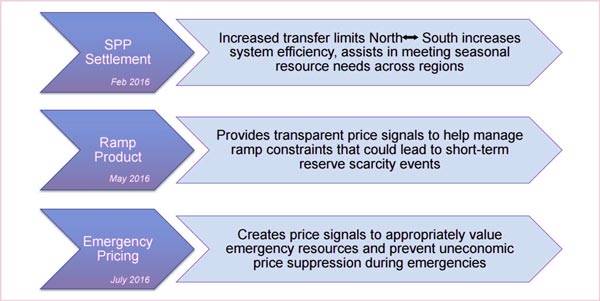By Amanda Durish Cook
MISO predicts a 28.4 to 37.5% reserve margin for the winter, about double its minimum of 15.2%.
Regardless of the ample supply, the RTO will continue providing monthly tests and workshops for stakeholders to prepare for “all winter can dish out this year,” MISO Executive Director of Strategy Shawn McFarlane said at the Oct. 24 Markets Committee of the Board of Directors meeting.
McFarlane said abundant supplies are the result of increased North-South transfer limits obtained in the RTO’s settlement with SPP; the rollout of its ramp product; and improved emergency pricing after the introduction of emergency pricing floors in July.
He also pointed to MISO’s improved gas-electric coordination, prompting Director Baljit Dail to ask how the RTO would respond in a repeat of 2014’s polar vortex.
Todd Ramey, vice president of system operations and market services, said the RTO now has better communication with pipeline operators, and its control room operators can now see when pipes are constrained through reports and map displays. “We have a better understanding about fuel supply impacts to generators in the footprint,” Ramey said.
Senior Director of Regional Operations David Zwergel told the Informational Forum on Oct. 25 that MISO is prepared to handle forced generation outages and fuel limitations. “We will continue to proactively prepare for any extreme conditions that may arise,” Zwergel said.
MISO is following National Oceanic and Atmospheric Administration forecasts, which predict a warmer- and drier-than-usual winter in MISO South and colder-than-usual temperatures in MISO North.
Jeff Bladen, executive director of market services, said the RTO filed a waiver with FERC on Sept. 28 to allow generators to recover verifiable offers in excess of the $1,000/MWh price cap. The filing marks the third year MISO has used the temporary waiver approach while it waits on a permanent offer cap rule from FERC. (See “3rd Run for Energy Offer Cap Interim Solution,” MISO Market Subcommittee Briefs.)
Bladen also said there was an increase in planned outages last month in preparation for the winter season, averaging 12.5 GW in September compared to 5.1 GW in August.






